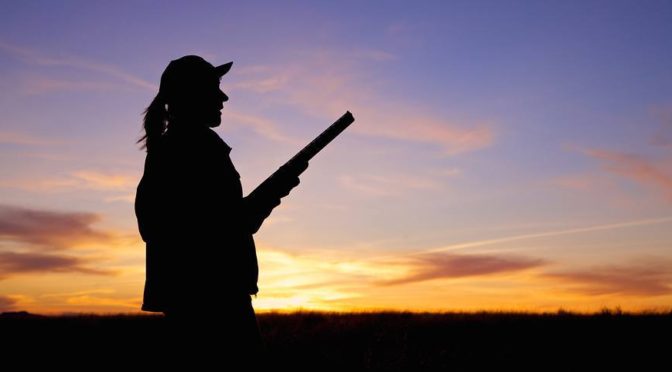“Just 4.5 grains- right there.” I stood next to my stepfather in his father’s garage, watching the scale as I measured gunpowder for the bullet cartridge we were assembling. While 9mm bullets can take more, this is the amount his father taught him when he was a kid. He helped me through assembling the bullet, the cartridge, and finally the primer. “If there’s ever an issue getting parts, this part is the part that will be hardest to source. You can reuse other parts, or make your own gun powder, but the primers aren’t reusable.”
I didn’t grow up in a militia. This isn’t some cautionary tale. This is one of the basic rites of passage in my area: To have a family member train you in gun safety and use. It’s part of what it means to be an adult in Appalachian Pennsylvania. The day you shoot or make a bullet cartridge for the first time, you’ve come one step closer to being an adult.
I’ve shot a range of guns, from shotguns to Desert Eagles, primarily on ranges. I have fairly easy access to guns if I wanted to go target shooting. And while I don’t hunt — I’m just not a great shot — I do butcher the meat that my family members bring home during hunting seasons. Gun culture is an essential part of the culture in Appalachian Pennsylvania, just as it is a number of other rural areas in this country. And within that culture, I am a responsible, if eccentric, adult.
I’m also disabled. I’m autistic and I have several mental health disabilities that make holding a full time job away from home unfeasible. Because of this, I am on Social Security Insurance (SSI) while I work. I’m pretty close to getting to a point where I can switch from SSI to just Medicaid buy-in for disabled people. I’m hopeful about that, but it’s not something I can do on my own. Neither were rescuing my credit score, paying my bills, or a number of other financial tasks. My stepfather, the same man who taught me how to assemble a bullet cartridge, is my representative payee.
Ironically, his assistance with my finances put my right to own a gun- and to participate in my culture- at risk. Under the SSA NICS Rep Payee Rule, having “mental disorders” and a rep payee would have put me on the gun ban list. The rule didn’t care that I’m not a danger to myself or others. It didn’t care that I initially was required a rep payee not because of my diagnosis, but because I was, at the time, homeless. It certainly didn’t care that having a rep payee manage my finances has been a boon for my mental health, one that has allowed me to decrease the impact that my anxiety has on my ability to live in my community. It just made an assumption, not based in evidence, that if I need help with my finances that I must be a danger.
That is, to be blunt, “horseshit.”
Thankfully, Congress has decided against making my disabilities, rather than my actions, a reason to remove my rights. In addition, it has avoided a precedent of denying people like me due process. If I were involuntarily hospitalized, in a legal sense, I’d still lose access to gun ownership because I’d have gone through a court process that determined me a danger to myself or others. While there are places that abuse involuntary hospitalization, I have friends and family who have that check on their rights and are OK with it, so it’s a discussion for another time.
Thankfully I’ve not had a legally involuntary hospitalization, since this is an area of my culture that is important to me.
On that day over a decade ago, my stepfather slowly un-cranked the vice that had been holding the cartridge in place while we worked on it. He handed me my first handmade bullet, one I’d never use because of the importance it held as a mark of my own adulthood and freedom.


Thank you